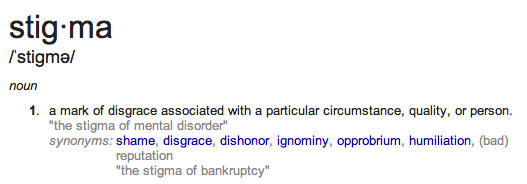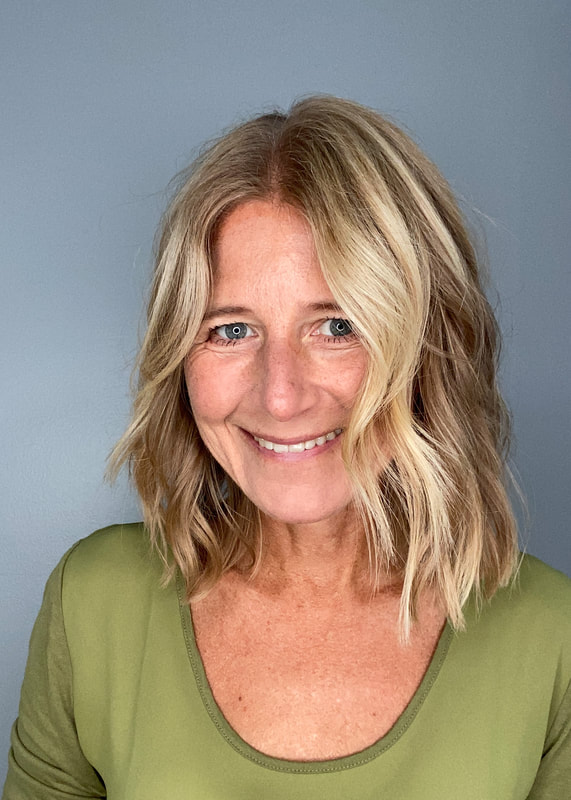|
About 12 years ago, when I went to the gym nursery to pick up my baby girl, having finished my workout that consisted of 30 minutes of dreadmill running followed by about 20 minutes of strength training, the nursery staffer, a woman maybe ten years older than me, remarked, “People who run are running away from something." She then looked at me pointedly and asked, "What are you running away from?” I took her question as a sort of weird, new-agey, perhaps slightly judgmental question and I laughed and said something like, “running away from fat and lazy.”
But the question always stayed with me and through the years I have found myself often contemplating it, especially while I run. As my life phases evolved, so did my answer to that question. I was running from boredom/tedium/grief/over-consumption/insomnia/loneliness/frustration/weakness. I was running toward joy/friends/immunity/strength /youthfulness/inspiration/nature/focus/creativity/God. This year, during my runs, I felt my focus become very clear. I was focused on running for my loved ones, including me, who are suffering because illness had resulted in death. Specifically, brain illness. I realized that when I asked myself that question, what am I running from? - I was running from stigma. Every time I have run since spring this year, whether it’s a training run or I’m racing in a tutu with hundreds or thousands of other runners, my mantra has been, running from stigma… running for brain health. As of this week, it is official – my training over the next year is being documented for a documentary that is, we hope, going to inspire great social change. By “we” I mean the director, Katherine Dickson (Guapa Films), and Jeremy Richman (The Avielle Foundation). I met Katherine at a women’s networking event where she won an award for her film Alma & Alex, which portrays a veteran suffering from PTSD. Katherine herself suffered a horrific TBI (traumatic brain injury) that continues to impact her, and brain health has been her main focus in her movie projects. We immediately connected and felt the need to create something that others could relate to, in their journey toward finding acceptance toward, and relief from, the struggles that ensue when we or someone we love is given a diagnosis. The Avielle Foundation’s mission is profound. After Jeremy and Jennifer’s daughter Avielle was murdered in the Sandy Hook Elementary shooting on Dec. 14, 2012, they decided that as scientists, the way they could make a dent in our increasingly violent world is by looking at the mental health side. Jeremy, a neuroscientist, is well aware of the limitations in today’s world when it comes to getting an accurate diagnosis and appropriate treatment. He and Jennifer recognize that a simple yet impactful way to turn the tide is to start with changing our perception. As they point out, our brain is a powerful, evolving, incredible organ. But the term “mental” immediately has a connotation that evokes shame, bewilderment, hopelessness. In the 1980s, “polite” people would not openly speak of someone’s cancer (remember that scene in St. Elmo’s Fire where the mother whispers the word at the dinner table?). Now, we are openly discussing diagnoses and treatments of breast, testicular, colon, cervical cancer. And yet when a loved one suffers from depression, anxiety, bipolar, hearing voices, etc – we shut down, circle the wagons, and shoulder the burden on our own. This is not working. Last night my 10 year old son asked, “What’s stigma?” Immediately I thought of the fact that until April of this year, I was very careful not to say “suicide” in front of my kids. I didn’t want them to know that ending your life is actually something that a lot of people consider an option. In 2012 (the last year of available data), someone died from suicide every 12.9 minutes. It’s the 10th leading cause of death in the U.S. And that’s not even counting all of the failed attempts, or all of the people who died but were considered “accidental” deaths. I shielded my kids from this out of fear. But when it hit my family, I realized that it was time to remove another layer of innocence. I answered my son’s question about stigma by explaining that not too long ago, it was common that if a child had certain birth defects, they would be institutionalized and there was a good chance their families would never see them again. And they certainly wouldn’t talk about them, because of the shame and embarrassment of having a “defective” child. William was horrified that anyone would do this. I explained that this may be an extreme example, but we have examples of stigma throughout our lives. People are often compelled to hide who they really are because they are afraid of the judgment or discrimination they may encounter if they live authentically. I explained that it is my hope that by making this movie, I will help others to be able to live authentically, to speak openly, to feel listened to, to get the answers and solutions they need. In the movie, as I train for Ironman Kalmar, and compete in other events leading up to Ironman, it is our hope that viewers will learn more about the importance of listening to and trusting our bodies and working with them, because exercise and eating a well-balanced diet isn’t just about the jeans – it’s also about providing our genes with a healthy environment in which to best thrive. When we are told that we have heart disease we don’t typically resign ourselves to being defined by our diagnosis. We typically undergo treatment and we (hopefully) make certain lifestyle modifications to support a healthier heart. We reach out to people on whom we can count for support and community. Our brain deserves the same consideration. Our loved ones deserve the same respect and support. Pain which is not transformed is transferred. - Brandon Nappi Let us work together and use our community, our vitality, our faith, our innate desire and gift to do good, by helping each other to transform our pain and suffering. Can you imagine a world where we have run away from stigma and the destruction it leaves in its wake, and live in a new paradigm of discovery, progress, acceptance, love? I can. Please “Like” our Facebook page to keep up with our progress, and share it so you too can help us run from stigma and toward brain health. Thank you.
0 Comments
|
Susanne NavasWellness coach, athlete, mom, entrepreneur. I love helping people mindfully reboot their health & joy. Archives
February 2023
Categories |


 RSS Feed
RSS Feed